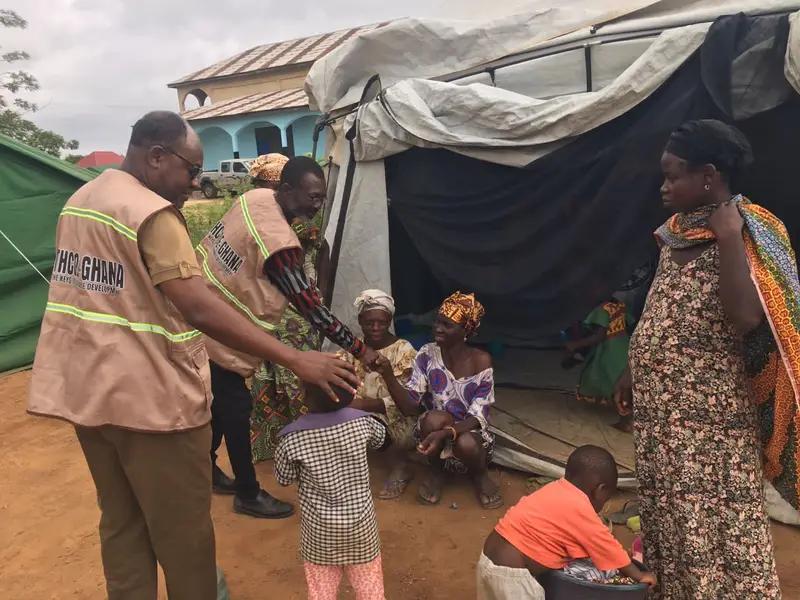Table of Contents
Gbenyiri clashes – The Savannah Region of Ghana is reeling from one of its worst humanitarian crises in years. Recent violent clashes in Gbenyiri have left 30 people dead and displaced over 48,000 residents. Thousands of families are now scattered across makeshift camps in Sawla-Tuna-Kalba and Bole, struggling to survive with limited access to food and shelter. The situation has further escalated as more than 14,000 people have crossed into neighboring Ivory Coast in search of safety.
Savannah Regional Minister Confirms Death Toll and Displacement
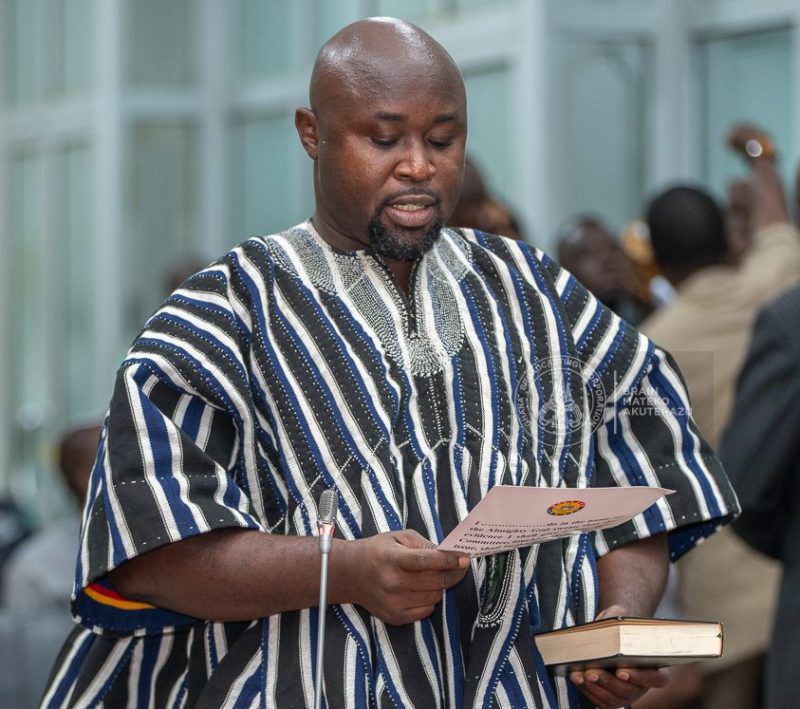
Savannah Regional Minister Salisu Be-Awuribe confirmed the grim statistics in an interview, noting that the reality on the ground is far more dire than earlier reports suggested. According to the minister, the death toll has officially reached 30, with an additional three feared drowned in the Black Volta. If confirmed, this would push fatalities closer to 33. He further revealed that two individuals remain in critical condition in hospital, fighting for their lives.
The minister added that the National Disaster Management Organisation (NADMO) has verified that more than 48,000 people have been displaced internally within Ghana. Meanwhile, authorities in Côte d’Ivoire have documented over 13,000 displaced persons crossing into Vonkore and surrounding areas.
Humanitarian Crisis in the Savannah Region
The Gbenyiri clashes have created a worsening humanitarian emergency. Entire communities have been uprooted, with children, women, and the elderly bearing the brunt of the crisis. Many of the displaced are relying on just one meal a day, raising fears of malnutrition and disease outbreaks in overcrowded camps.
Makeshift shelters in Sawla-Tuna-Kalba and Bole Bamboi are stretched beyond capacity. Families are sleeping in open spaces under harsh weather conditions. Healthcare facilities in the region are also overwhelmed as casualties continue to arrive, straining limited resources.
Relief Efforts and Government Response
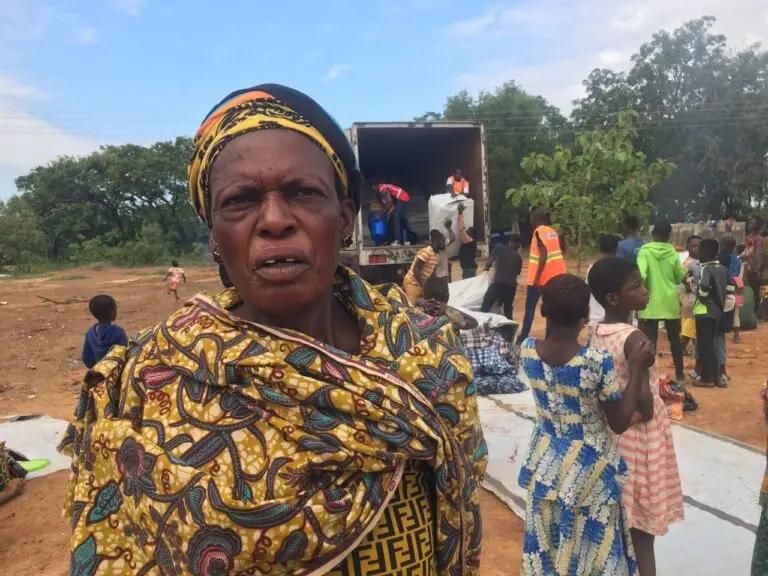
Despite the severity of the crisis, the Savannah Regional Minister insists that food and relief supplies remain available. He pointed out that over 500 bags of rice have already been delivered to NADMO’s regional office and distributed to displaced communities in Sawla-Tuna-Kalba. Additional supplies, including cooking oil, bedding, and non-food essentials, are also being dispatched.
Mr. Be-Awuribe assured affected families that the government is working tirelessly to provide relief. He emphasized that “the process is improving,” even though the scale of the crisis continues to expand.
Presidential Delegation to Address Gbenyiri Clashes
In response to the growing unrest, President John Mahama has dispatched the Interior Minister, Alhaji Muntaka Mubarak, along with a team of officials to engage with traditional leaders, including the overlord of Gonjaland. The government hopes that dialogue will pave the way for lasting peace and reconciliation among the warring factions.
Properties worth millions of cedis have been destroyed in the clashes, leaving behind a trail of devastation that will take years to rebuild. For many residents, the psychological scars run just as deep as the physical destruction.
Displaced Families Seeking Safety in Ivory Coast
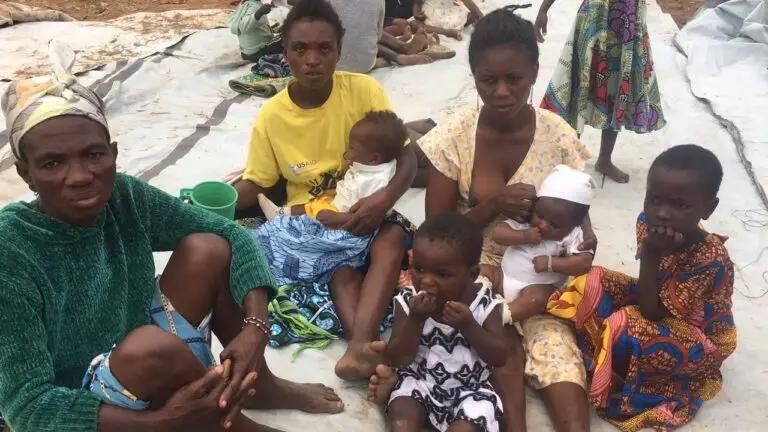
The humanitarian impact of the Gbenyiri conflict is not limited to Ghana. Reports from Ivorian authorities confirm that more than 13,000 Ghanaians have crossed into border towns like Vonkore, seeking safety from the violence. Many of these families are being housed in temporary camps, while others are integrating into host communities with little to no resources.
This cross-border migration raises concerns for regional stability and international humanitarian aid agencies, who are now coordinating with both Ghanaian and Ivorian officials to respond to the influx of displaced persons.
Urgent Need for Humanitarian Aid
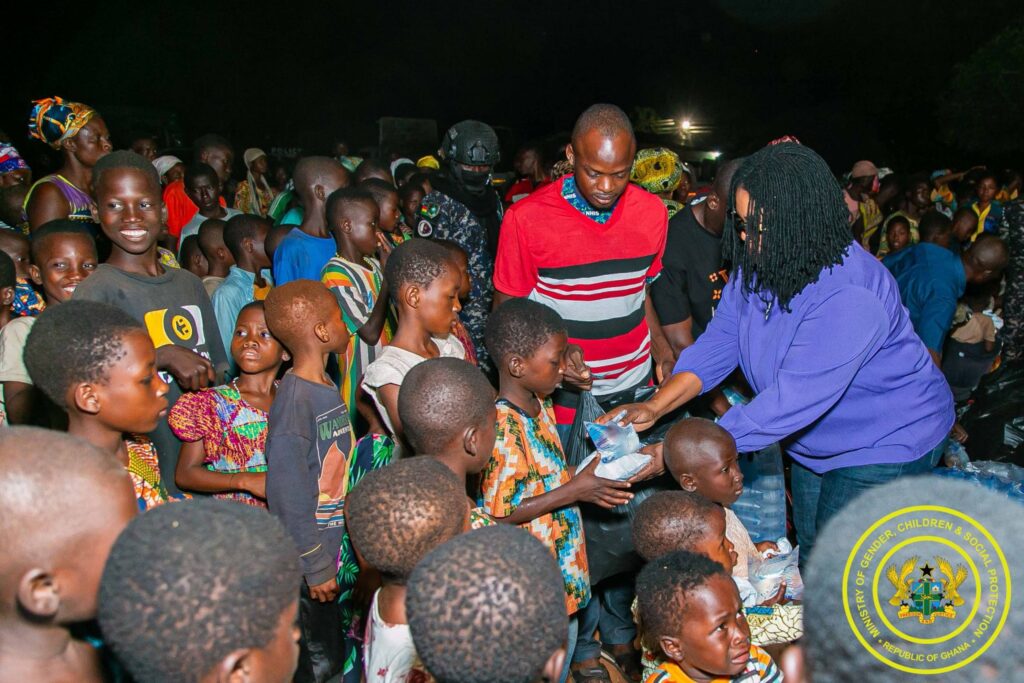
As the situation worsens, calls for increased humanitarian aid are growing louder. Relief workers and local NGOs warn that without urgent intervention, the displaced populations could face famine, disease outbreaks, and further loss of life.
Community leaders are urging international partners, including the United Nations and humanitarian organizations, to step in with additional food aid, medical support, and shelter materials. The Savannah Regional Minister has also called for calm, urging residents to support peace-building initiatives to prevent further bloodshed.
Conclusion – Gbenyiri clashes
The Gbenyiri clashes have plunged Ghana’s Savannah Region into a deep crisis, with over 48,000 people displaced and dozens of lives lost. While relief efforts are underway, the humanitarian situation remains dire. Families continue to face hunger, homelessness, and uncertainty about their future. Resolving the conflict and restoring peace is now critical to preventing an even greater catastrophe.
Read also: Government Confirms Bold Merger Between AirtelTigo and Telecel Ghana Amid Heavy Losses

